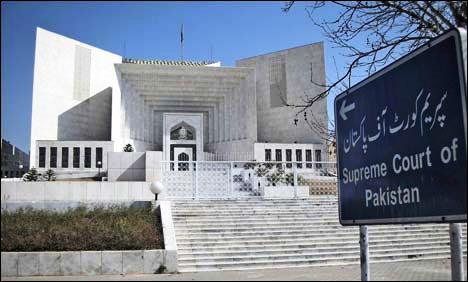The Supreme Court summoned the record of the NAB referrals following revisions to the statute on Wednesday.
The Supreme Court heard former Prime Minister Imran Khan’s appeal against the government’s amendments to the National Accountability (NAB) Ordinance after the no-confidence motion.
The case was heard by a special three-member court led by Chief Justice Umar Ata Bandial.
Khawaja Haris, attorney for the petitioner, contended that a public figure should have the people’s trust and be accountable to it.
“The involvement of a public official in corrupt acts undermines public trust,” Khawaja Haris pointed out.
“I’m not talking about speculations, but about the constitution.” “It is the court’s job to preserve fundamental human rights,” the lawyer stated. “The Supreme Court deemed the Contempt of Court Act 2012 invalid,” he explained.
“The court repealed the statute due to violations of human rights and the incompetence of lawmakers,” the attorney stated.
“Can a statute violating basic rights be annulled due to the incompetence of parliamentarians?” the court asked.
“The statute was not abolished due to incapacity but was ruled unlawful by the court due to its bias,” remarked CJP Bandial.
“Where is it written that the statute was repealed due to the incompetence of the parliament?” said Justice Mansoor Ali Shah.
“The court rejected the anti-human-rights law,” Justice Shah stated.
“It was never said that the parliament was unable; the court never raised the issue of the parliament’s eligibility or capacity,” Justice Mansoor Shah observed.
“It is not written anywhere; it is a question of comprehension,” Chief Justice Bandial explained. “In the bogus accounts, basic human rights were associated with public trust,” the CJP remarked. “NAB instances are unique,” he continued.
“It is up to the court to decide whether or not the fundamental human rights are protected,” Khawaja Haris’ counsel added.
The court postponed further proceedings in the matter until November.






